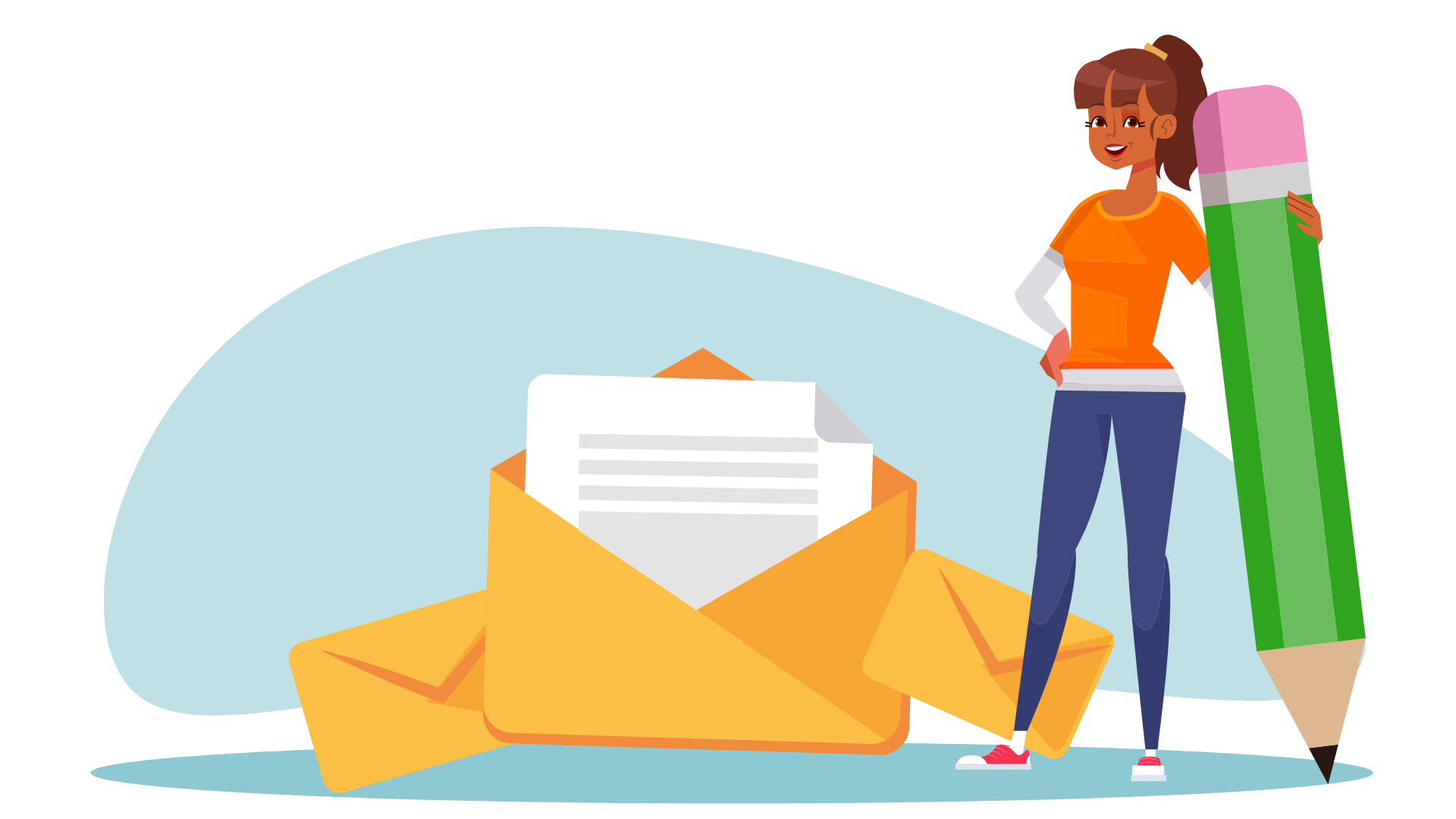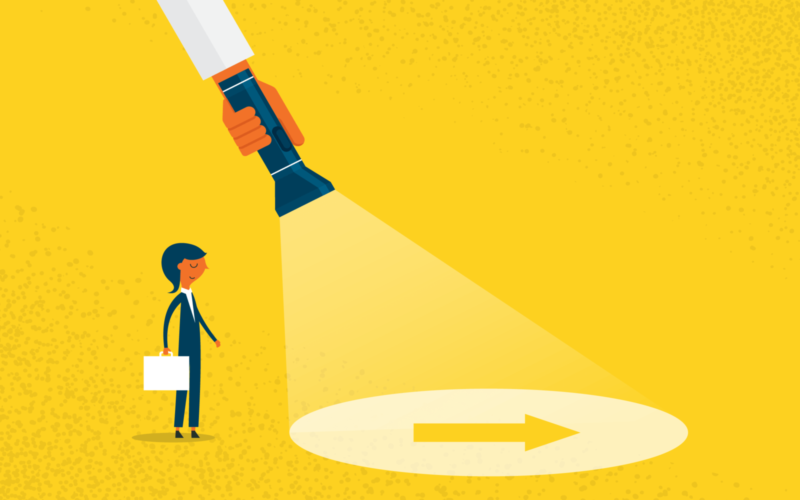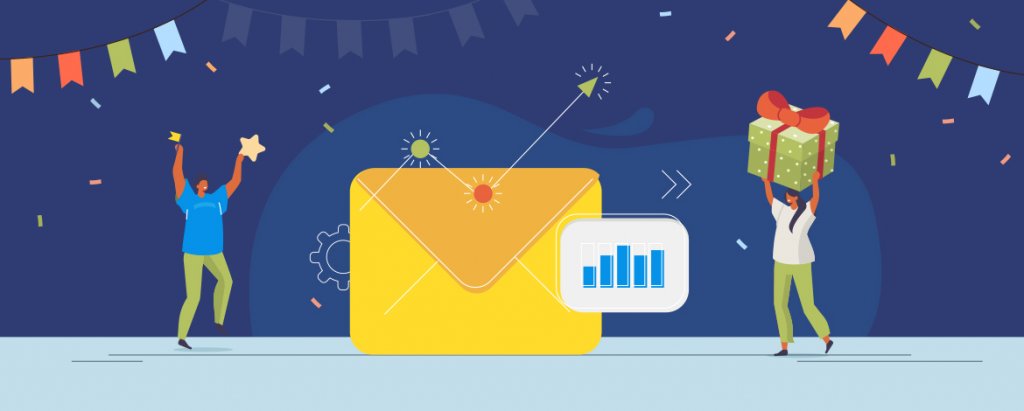As the digital world continues to evolve at breakneck speed, businesses are constantly adapting to new marketing tools, channels, and strategies. Amid the buzz surrounding emerging technologies, one question remains: Is email marketing still a powerful force in 2024?
The answer is not just yes—it’s an emphatic absolutely. While trends may come and go, email marketing remains a steadfast and highly effective method of reaching and engaging with customers. With more than 4.5 billion active email users globally—a number set to grow—email marketing offers businesses a direct line to their audience in ways that are personal, scalable, and measurable.
If you’re debating whether to introduce or continue with email marketing, now is the time to act. In this article, we’ll uncover why email marketing is more than just relevant—it’s indispensable. Discover which businesses benefit the most from this channel and why 2025 is the year to harness its power to drive your business forward.
E-Commerce and Retail
If you’re in the e-commerce or retail business and not using email marketing, you’re leaving money on the table. Campaign Monitor reports that in 2024, abandoned cart emails alone can recover up to 25% of lost sales, a figure that continues to grow as personalization technologies improve.
Abandoned Cart Emails:
One of the simplest and most effective email tactics in e-commerce is recovering abandoned carts. Nearly 70% of online shopping carts are abandoned, but by sending automated cart recovery emails, you can reclaim a significant portion of those lost sales.
In 2025, thanks to AI-driven personalization, you can boost recovery rates by up to 15%. A well-timed, friendly reminder nudging the customer to complete their purchase—coupled with a small incentive like free shipping or a discount—can make all the difference.
Consider setting up a sequence of abandoned cart emails that progressively increase urgency or offer better incentives, depending on customer behavior.
Personalized Product Recommendations:
In today’s world, generic emails simply don’t cut it. Customers expect tailored experiences, and that’s where AI-powered personalization shines. By analyzing your customers’ browsing history, past purchases, and preferences, you can send product recommendations that feel uniquely curated for them.
These personalized emails are projected to increase click-through rates by 45%, directly leading to more conversions. Implementing AI tools to deliver these recommendations at the right time—perhaps as part of a post-purchase follow-up or a monthly product update—can significantly boost both customer engagement and average order values.
Promotional Campaigns:
When it comes to promotions, email is still king. Flash sales, limited-time discounts, or exclusive offers delivered via email create a sense of urgency that motivates immediate action. To make these campaigns more effective, segment your email list based on customer behavior or purchase history, then send targeted promotions that are highly relevant to each group.
For example, offer a special deal on products that a customer has shown interest in, or send personalized birthday discounts. By combining urgency with personalization, your promotional emails can see conversion rates soar by as much as 30%.
Subscription-Based Businesses
If you’re offering a subscription-based service (think SaaS, streaming platforms, or even subscription boxes), email marketing is your best friend. In 2024, companies offering free trials or subscription services are using email to increase conversions by 35% compared to traditional lead nurturing.
Onboarding Series:
A well-crafted onboarding email series can make or break the relationship with your customer. Imagine this: A startup offering a project management tool launched with a free trial option, but struggled with converting trial users into paid subscribers.
After introducing a personalized, step-by-step onboarding email series, they saw remarkable results. The emails guided new users through key features, shared success stories, and provided tips tailored to their industry. With an open rate of 60%, their onboarding sequence not only helped users see the value of the product but also reduced churn by 25%, turning many of those trial users into loyal customers.
Subscription Renewal Reminders:
Email also plays a critical role in keeping customers subscribed long-term. Automated renewal reminders—sent before a subscription expires—ensure customers don’t forget to renew. Take the example of a popular meal kit delivery service that noticed a drop-off in renewals. By introducing a series of renewal reminders, paired with special offers for early renewals, they saw a 15% higher engagement rate. Customers appreciated the nudge and the incentive, leading to increased retention rates and fewer lapsed subscriptions.
B2B Companies
For B2B companies, email marketing remains a cornerstone of the sales funnel. HubSpot data indicates that B2B email marketing delivers ROI of $42 for every $1 spent. This makes it a no-brainer for businesses looking to generate qualified leads and nurture relationships in 2025.

Lead Nurturing:
In B2B, the sales cycle can be long and complex, but email marketing has become a key tool in bridging the gap between awareness and decision-making. Companies that strategically nurture their leads through structured email campaigns see 50% higher conversion rates compared to those that don’t.
The key here is delivering valuable, educational content that helps build trust and keeps your brand top-of-mind throughout the decision-making process.
For example, a B2B software company may share a series of case studies demonstrating how their product solved specific pain points for clients in the prospect’s industry. Or, they might offer whitepapers and research reports that showcase industry trends and insights, helping position their brand as a thought leader.
One logistics firm, for instance, used a sequence of educational emails offering free resources on supply chain management. By consistently providing value, they nurtured cold leads until they were ready to convert, seeing their conversion rate skyrocket by 40% within six months.
Event Invitations:
B2B companies rely heavily on events, both in-person and virtual, to engage with prospects and demonstrate expertise. In 2024, email remains the go-to channel for sending event invitations, with impressive results.
For example, a tech consulting firm used a targeted email campaign to invite senior executives to a webinar on AI and automation. By segmenting their audience and tailoring the message to the specific pain points of different industries, they achieved a 24% open rate—above the industry average—and saw 5% of invitees register.
Although this may seem like a small percentage, for high-ticket B2B deals, even a handful of registrants can result in significant revenue. One manufacturing firm, for example, used emails to invite potential clients to a live demo of their new equipment, converting several attendees into contracts worth millions of dollars.
Personalized Communication:
The power of email marketing in B2B lies in its ability to personalize messaging based on the recipient’s role, industry, or specific needs. A generic one-size-fits-all email might go unnoticed, but a tailored message can catch the attention of even the busiest executives. Personalization, whether by addressing specific pain points, offering relevant solutions, or including the recipient’s name and company, can increase engagement significantly.
In fact, businesses that personalize their emails at scale see up to 5x higher ROI compared to sending generic campaigns. For instance, a cloud services provider created highly targeted email campaigns based on the specific job roles of their recipients—IT managers received detailed technical content, while C-suite executives received more strategic insights. This approach led to a much deeper connection with their audience and ultimately higher conversion rates.
Imagine a B2B marketing agency specializing in SaaS companies. They segmented their audience by company size, tailoring emails accordingly—startups received guides on scaling quickly, while larger enterprises were sent success stories of streamlining operations. The result? Engagement skyrocketed, with click-through rates jumping by 45% and conversion rates increasing by 30% within months. Personalization is no longer optional; it’s the difference between a lead that turns cold and one that converts.
Nonprofits
For nonprofits, email marketing is a lifeline to donors and supporters. The M+R Benchmarks report shows that in 2025, email will account for 30% of online donations, underscoring its importance for fundraising efforts.
Donation Campaigns: With compelling storytelling and a clear call to action, email campaigns drive 28% of all online donations. When nonprofits use personalized, segmented email lists, they see a 15% increase in donor engagement, meaning more funds raised for critical causes.
Event Promotion and Volunteer Recruitment: Nonprofits using email marketing for event promotion or volunteer recruitment experience 20% higher attendance rates than those relying on other channels. Email provides a cost-effective way to connect with supporters and keep them engaged throughout the year.
Hospitality and Travel
In 2024, the hospitality and travel industries are heavily relying on email marketing to keep customers engaged and boost loyalty. Email continues to be the preferred communication channel for 41% of travelers, according to Skift.
Booking Confirmations and Reminders: Travelers open booking confirmation emails at a staggering rate of 70%. Email allows you to not only confirm bookings but also upsell with offers like room upgrades or travel packages. Additionally, reminder emails sent prior to a trip improve customer satisfaction and retention by 18%.
Loyalty Programs: Travelers love loyalty programs, and email marketing is the perfect way to keep them informed. Hotels and airlines using email to promote loyalty benefits have seen a 25% increase in repeat bookings in 2024.
Post-Trip Engagement: Post-trip surveys and follow-up emails asking for reviews or offering discounts for a return trip have 20% higher open rates than other transactional emails, helping hotels and travel agencies build lasting relationships with customers.
Education and Online Learning
Online learning is booming, and in 2024, email is the primary tool for engaging students and driving course completions. 66% of education providers report that email marketing is their best lead generation tool.
Lead Generation and Nurturing: Offering free webinars, downloadable resources, or course discounts through email generates a 35% higher conversion rate than other marketing channels. This makes email ideal for online educators looking to attract and convert prospective students.
Course Reminders and Updates: Regular email updates and course reminders improve student engagement and completion rates by 20%, making it easier to retain students and encourage them to enroll in future courses.
Health and Wellness
For health and wellness businesses, email marketing offers a personalized way to connect with clients and promote long-term engagement. With 23.6% average open rates, according to Mailchimp, email is key to driving action in 2024.
Class or Appointment Reminders: Automated reminders have reduced no-show rates by 30% in 2024. Whether you run a fitness center, spa, or clinic, email reminders ensure customers keep their appointments and stay engaged with your brand.
Wellness Content: Wellness brands that regularly send tips, workout guides, or mindfulness content via email report a 45% higher engagement rate. This helps position them as thought leaders while building trust with their audience.
The Right Partner Makes All the Difference
As we move into 2025, email marketing is not just evolving—it’s consistently proving its value across industries. Whether you’re in e-commerce, B2B, hospitality, or any other sector, email provides a direct, personalized, and cost-effective way to connect with your audience and drive tangible business outcomes. The statistics make it clear: companies that leverage email marketing see increased engagement, stronger customer relationships, and higher returns on investment than through other channels.
But here’s the key—while the power of email marketing is undeniable, getting the most out of it requires more than just sending emails. To truly unlock its full potential, you need the right partner by your side. A skilled email marketing team can ensure your campaigns are strategically crafted, perfectly timed, and designed to convert.
So, if you’re still on the fence about adding or continuing email marketing in your 2025 strategy, don’t hesitate. Email marketing is here to stay, but to make it the secret weapon your business truly needs to thrive, partnering with the right experts can make all the difference.




